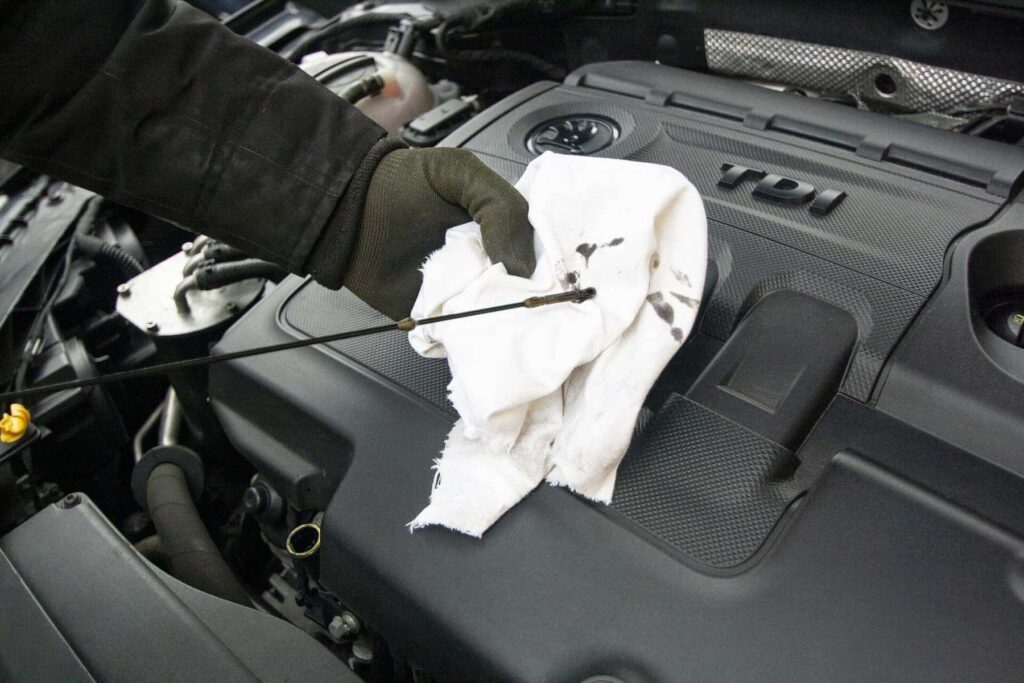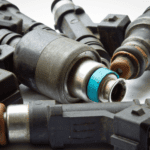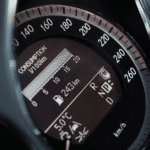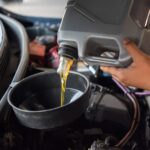The panic worsens every mile you drive, sensing a burning smell. But what happens if you find a burning oil smell but no leak found? There has to be a reason for the burning smell.
There are many possible causes you may come across, and not all involve a leak. This article hopes to point you in the right direction to discover the issue. However, you may be determined that there is no oil leak, so it can’t be oil-burning. The thing is, if oil seeps into other hot parts of the engine, even just a drop, the smell can be pretty intense. Unless the engine and transmission are immaculately clean, it is tough to say that there is 100% no oil leak.
7 Possible Reasons a Car Has a Burning Oil Smell but No Leak?
Just because you can smell oil burning doesn’t mean it actually is oil burning. Any burning smell in the car could be confused with a burning from another source. To be clear, if you sense a burning smell, it is best to take the vehicle to be checked over; a mechanic will diagnose and rectify the issue, even if it is simple and not threatening. It is better to be safe than sorry.
Overfilled engine oil
When an engine is overfilled with oil, the oil can seep through gaskets, seals, and other engine parts. Once where the oil was never designed to get, it will either burn or cause damage. But depending on the amount and where in the engine the oil gets, it will likely burn away. Usually, there will be large white clouds of smoke(burning oil) exiting the exhaust, which is a good indication that the oil is being combusted alongside fuel inside the cylinder.
Very low engine oil level
An engine with a dangerously low oil level gives off a similar smell to engine oil burning. The oil leaves a coating on engine components that is normally constantly replenished as the oil is distributed around the engine when the oil level is correct. However, when the oil level is low, the coating will burn away, and you will smell it. Basically, it is the smell of dry engine components working with very little lubrication.
Clutch burning
A burning clutch, either slipping or at the end of its life, has a burning smell that could be confused with burning engine oil. I’m sure you’ve smelt a burning clutch at some point in your life, even from a passing car trying to pull away, over-revving the engine, keeping the clutch at a biting point, and not releasing the clutch while trying to pull away. Otherwise known as ‘riding the clutch,’ it overheats, burns, and stinks.
On the other hand, a clutch at the end of its life that slips as you try to accelerate, the revs rise, and the car doesn’t accelerate will also give off a vile burning smell.
Exhaust leaking
Although you can usually hear an exhaust leak, some pinhole-sized exhaust leaks won’t be so loud. Exhaust gases are pushed out of the back of the car so you don’t smell them. If a small leak from the exhaust closer to the engine is apparent, the smell can be confused with burning engine oil.
Another exhaust-related issue could be a blocked DPF, EGR valve fault, or catalytic converter issue; a burning smell would also be apparent if any of these become blocked or faulty.
Seized brakes
An overheated brake system smells similar to a burning clutch plate, which can be caused by excessive hard braking. Another cause of an overheated brake system is seized brakes. A seized brake caliper causes the brake pads to become partially engaged, overheating the whole corner of the vehicle. The wheel rim, tire, and brake components become very hot, which you will smell. You may also see smoke rising from the seized brakes.
Transmission fluid leaking
Transmission fluid is very similar to engine oil. Any leaking transmission fluid will burn on the hot transmission components as you drive. Transmission fluid can leak for various reasons, including a faulty transmission pan gasket, a damaged transmission cooler line, or worn-out seals. When this happens, the fluid can burn on the hot transmission components as you drive, resulting in a burnt, pungent smell. It might not be easily identifiable by eye if it’s a small leak.
Failing electrical components
A problem with electrical components, such as wiring getting hot, a blown fuse, or a relay overheating, will give a burning smell, which could also become confused with burnt engine oil. In addition to the smell, you may also notice other warning signs, such as flickering lights, sparks, or a buzzing noise.

How Do You Tell if Your Engine Is Burning Oil?
The easiest way to tell if your engine oil is burning is to monitor its level. If you start a journey by ensuring the engine oil is on the maximum level. After a few trips over a day or two, recheck the level. If it has dropped and no leak can be seen, it is more likely to have burnt away oil.
Excessive smoke from the exhaust as you drive is a second indication your engine is burning engine oil. You may see it in the rear-view mirror as you drive, and it can be backed up by monitoring the oil level.
Can You Drive if the Car Smells Like It’s Burning?
The fault must be diagnosed before deciding if you can drive your car if you sense a burning smell. It is impossible to say that driving is safe without knowing the fault. However, if the scent could be traced back to a tiny pinhole exhaust leak, it would need repairing, but you could carry on your journey without causing further issues.
How to Get Rid of a Burning Oil Smell in a Car?
This may sound sarcastic, but the best way to eliminate the burning oil smell in the car is to fix the problem. A short drive with windows open to air out the car and spraying some odor-eating air freshener will eliminate the smell immediately. But the smell will return as soon as whatever is burning returns if its not rectified first.
Summary
To summarise, if you find a burning oil smell but no leak, you may confuse burning oil with another fault. As soon as you notice such a smell, it must be investigated and rectified to stop further issues later. Cars are like small snowballs rolling down a hill in thick snow; once discovered, they lead to a bigger problem if not stopped quickly.









